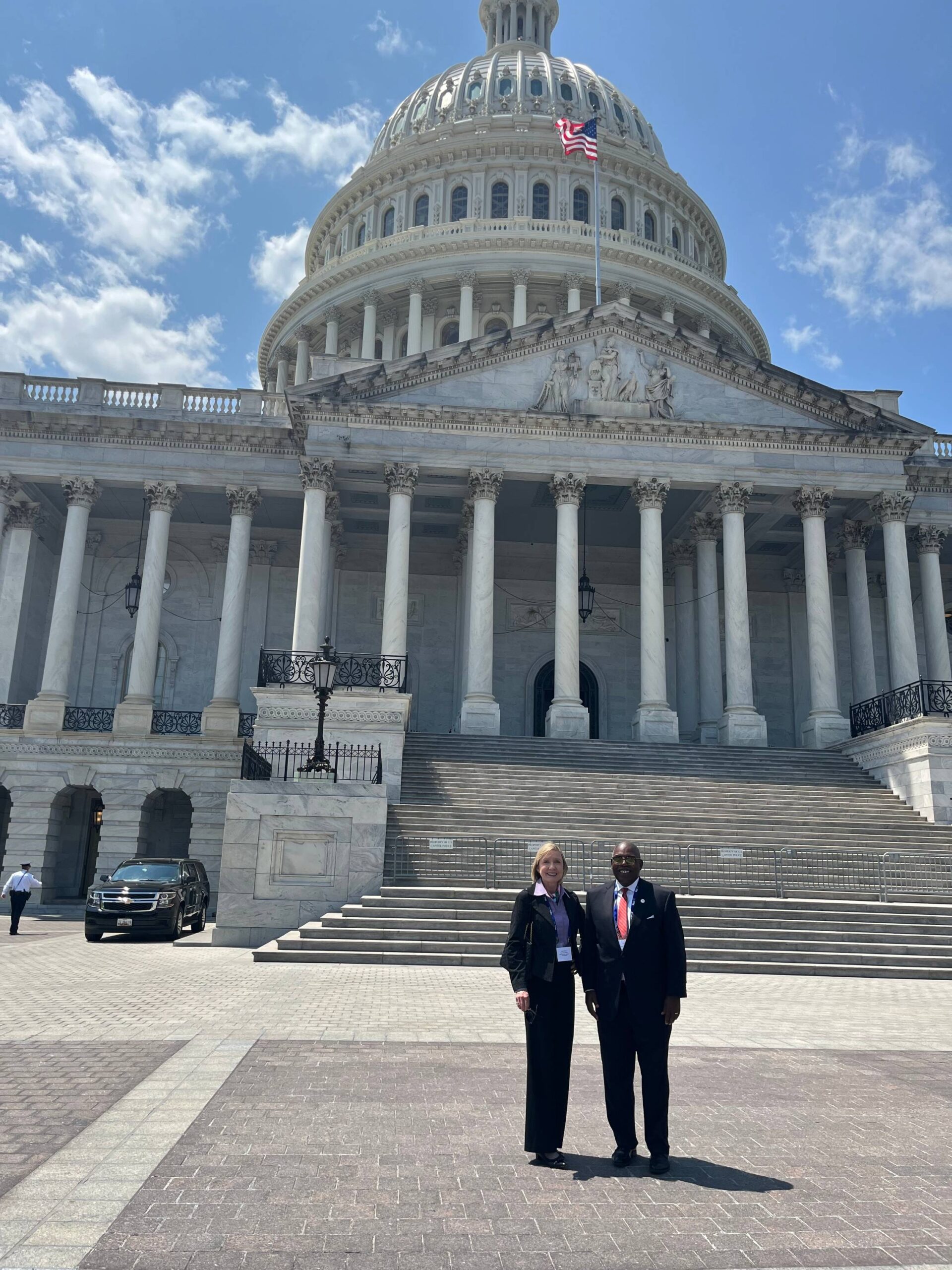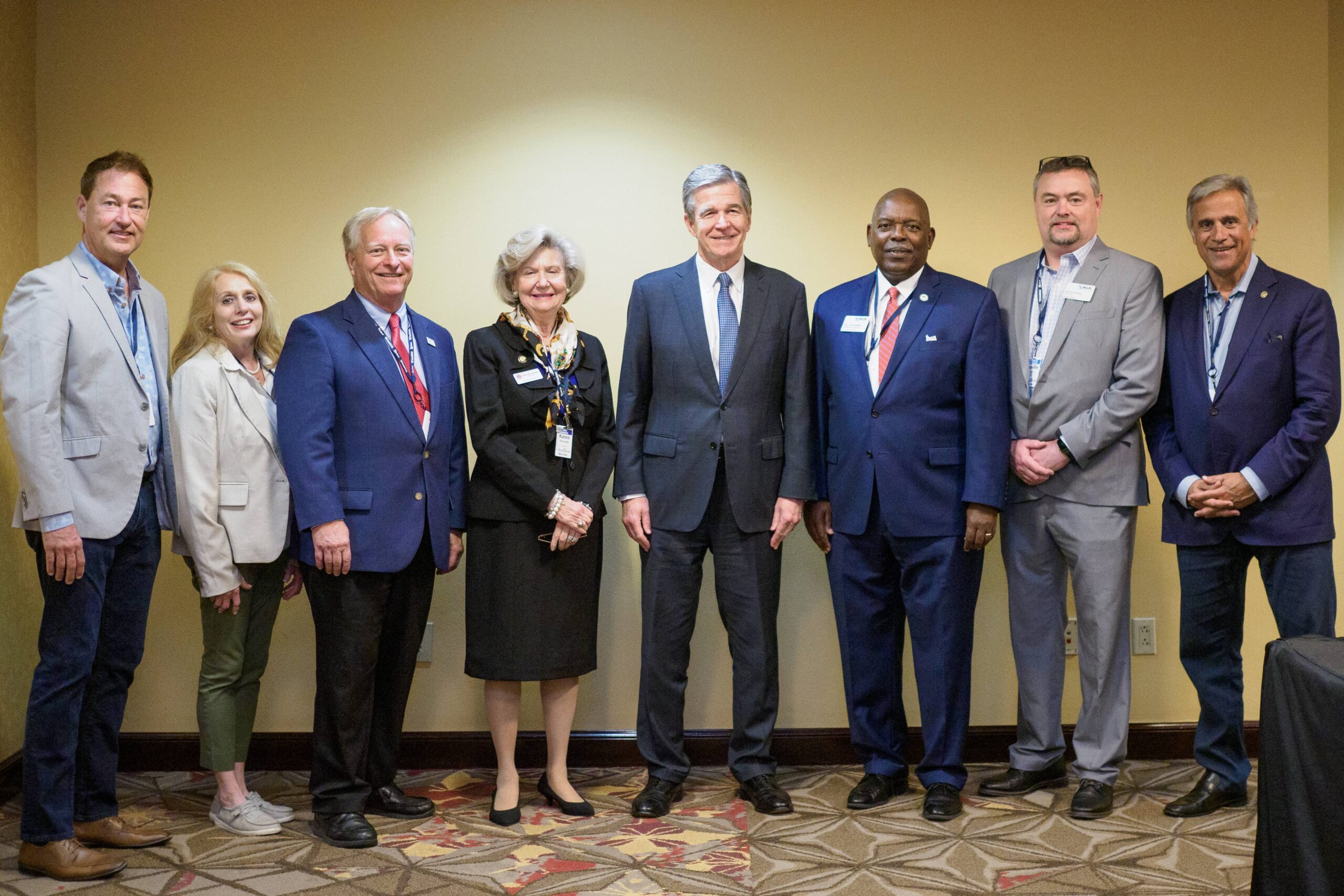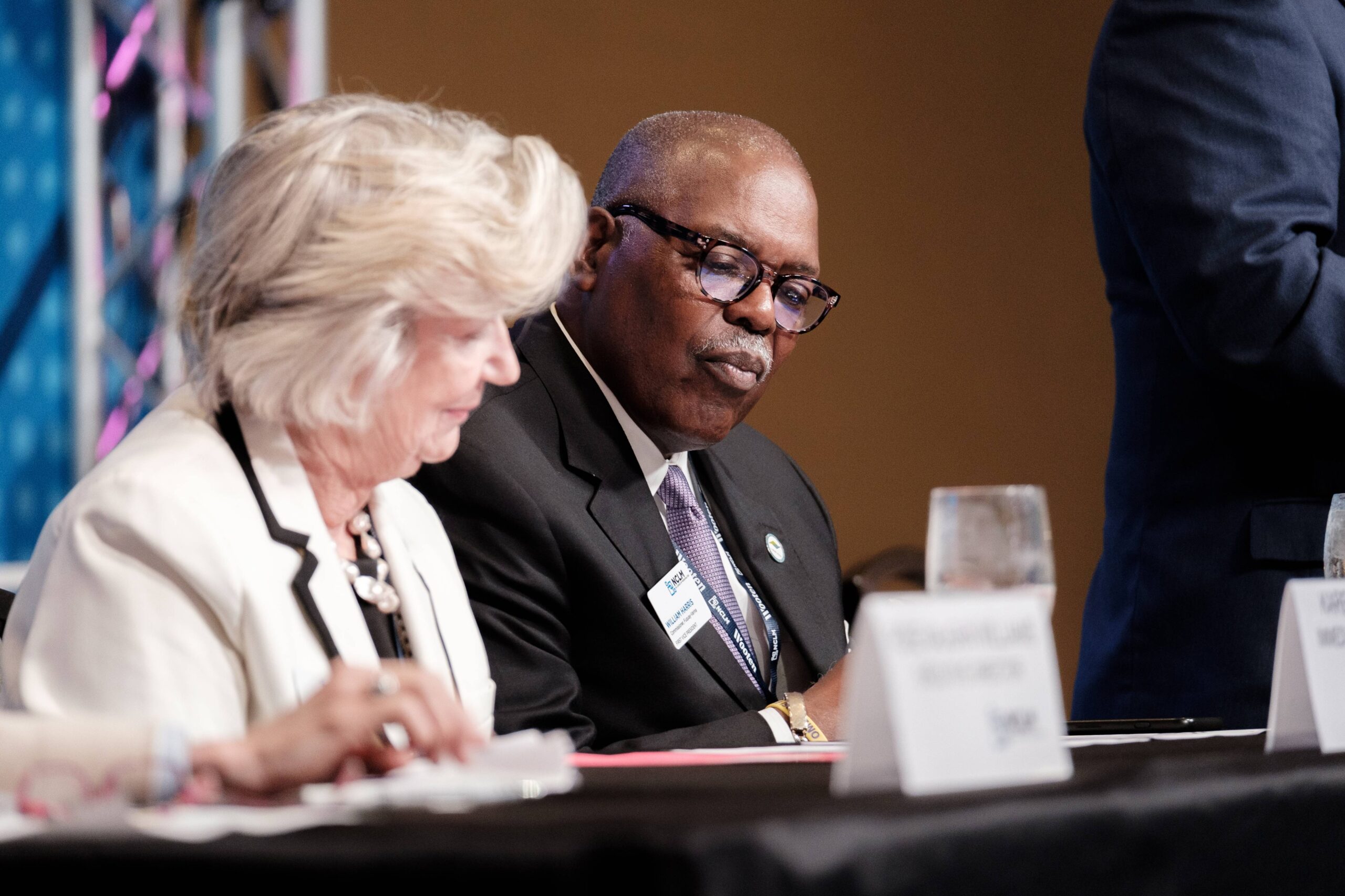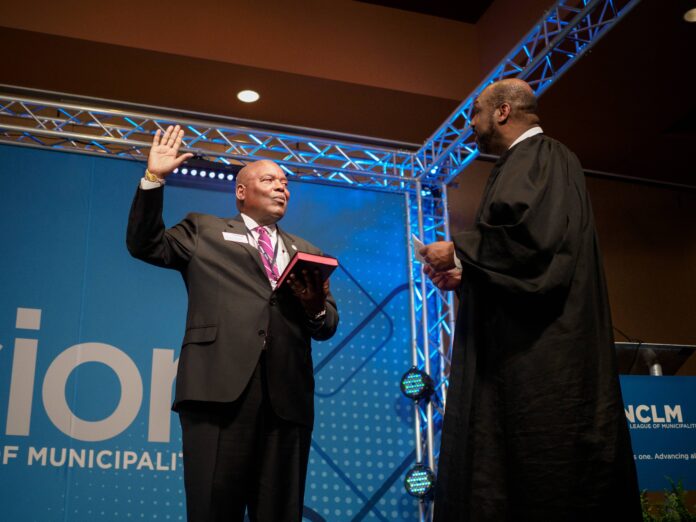THROUGH EDUCATION AND A DEEP CONNECTION TO THE COMMUNITY, HARRIS HAS SUCCESSFULLY LED FUQUAY-VARINA FOR MORE THAN THREE DECADES.
For more than 30 years, William Harris has been a staple on the Fuquay-Varina town council. It hasn’t been time spent idly. Relying upon education and a passion for public service, Harris has been effective in pushing for change and managing one of the fastest-growing towns in North Carolina, and he’s done it all never outstepping the wishes of his community, which has responded in turn by electing him over and over again since 1989.
Yet, when he reflects on the experience, he doesn’t take the credit. The praise and admiration flow only outward. Harris speaks of his parents, his neighbors, his educators, his church and his colleagues. More accurately, he points to the philosophical—notions of hope, progress, and democracy.
William Harris understands the weight of his position. As a student of public administration and public policy, he knows full well the impact he can have on his community. As a student of history, he knows the weight of his leadership and what it means to his family, his community, and those who came before him.
One story sums it up best—a story told by Harris upon accepting the role of NC League of Municipalities President when he stood in front of hundreds of local officials at CityVision 2023 and recalled his first election.
 As Harris remembers, it was the night before his first election, and he was speaking with his neighbor and close friend named Lannie McCullers who was about 90 years old. To most in the community, she went by Miss Lannie. Harris called her Ma Lannie. “She was a member of my church, and I just admired her wisdom,” Harris said. “She had so much to teach me.” That night, they were making their election day plans for the following morning. McCullers told him, “The polls open at 7 a.m., so you better pick me up tomorrow at 6:45.” Harris agreed.
As Harris remembers, it was the night before his first election, and he was speaking with his neighbor and close friend named Lannie McCullers who was about 90 years old. To most in the community, she went by Miss Lannie. Harris called her Ma Lannie. “She was a member of my church, and I just admired her wisdom,” Harris said. “She had so much to teach me.” That night, they were making their election day plans for the following morning. McCullers told him, “The polls open at 7 a.m., so you better pick me up tomorrow at 6:45.” Harris agreed.
That morning, however, was understandably busy. Harris didn’t get to McCuller’s house until about 7:15. She was angry, Harris remembers, and he said to her, “Ma Lannie, I’m sorry, but what’s the big deal? We have plenty of time. The polls are open all day.” And McCullers responded with a line that Harris has never forgotten.
She said, “I wanted to be the very first person to vote for William Harris.”
Harris still uses that moment as a touchstone for his leadership. “Here is this 90-year-old woman, born in the 1800s, who as an African American has lived through segregation and through Jim Crow and through so much. I wasn’t just a candidate for the town board—I was a sign of progress. To Ma Lannie, I represented hope.
“It still resonates with me. It’s my core motivation for public service.”
 Harris also points to his parents, both as motivation and mentorship. His father was a World War II veteran, an active community member, and, as Harris remembers, a disciplinarian. “He taught me what it meant to be involved,” Harris said. “He believed in democracy.” Harris’s mother complemented that influence, teaching the value of the social side of service. One of the first female barbers in the area, Harris recalls watching her interact with customers, build relationships, and develop this strong bond between their family and the families of the community. “Those two worldviews, combined—I gleaned a lot from those two people,” Harris said.
Harris also points to his parents, both as motivation and mentorship. His father was a World War II veteran, an active community member, and, as Harris remembers, a disciplinarian. “He taught me what it meant to be involved,” Harris said. “He believed in democracy.” Harris’s mother complemented that influence, teaching the value of the social side of service. One of the first female barbers in the area, Harris recalls watching her interact with customers, build relationships, and develop this strong bond between their family and the families of the community. “Those two worldviews, combined—I gleaned a lot from those two people,” Harris said.
The aim wasn’t always public office, however. Harris, a lifelong Fuquay-Varina native, received an undergraduate degree in business administration and worked as a probation parole officer for some time, but his sights were on becoming a professional musician. Harris is an accomplished trumpet player and traveled up and down the East Coast performing. “I thought I was going to be a studio musician,” he said. Inspired by his parents, Harris became active in the community and his church while pursuing that vision. He became a more and more visible presence in town. Eventually, he was so well known and admired around Fuquay-Varina that when a vacancy opened on the town board in 1987, Harris was approached about filling it. He agreed and was appointed to the role. He won his first election in 1989, and has won every re-election since.
“I never imagined I would be in public service this long,” Harris said. “It started as something I thought I’d do for a little while, but now it is a part of who I am.”
 In what would become a theme for Harris, he involved himself as fully as possible. Later in this career, when he wanted to become a better public speaker, he didn’t just participate in Toastmasters (the nonprofit organization dedicated to public speaking education), he became president of the local Toastmasters club. When he wanted to engage with policy statewide, he didn’t just get involved with the NC League of Municipalities, he joined the board of directors, eventually becoming president.
In what would become a theme for Harris, he involved himself as fully as possible. Later in this career, when he wanted to become a better public speaker, he didn’t just participate in Toastmasters (the nonprofit organization dedicated to public speaking education), he became president of the local Toastmasters club. When he wanted to engage with policy statewide, he didn’t just get involved with the NC League of Municipalities, he joined the board of directors, eventually becoming president.
He didn’t just join the town board of commissioners, he went back to school and earned his Master’s of Public Administration. While this degree leads many into local government work and elected office, it is exceedingly rare for people to pursue this education after holding public office. It reflects a true commitment to education, and for Harris, revealed the inner workings of local government. Now knowing how the machine works, he’s been able to navigate challenges and leverage strengths for 30-plus years.
“You have quantitative analysis, public personnel management, public budgeting, finance—all of those things are relative to this particular job,” Harris said. “It has allowed me to understand the areas that are important as far as running the city.”
His list of accomplishments proves the case. Harris remembers hitting the ground running early bringing the town up to speed with some administrative best practices, such as a strategic plan. Using that framework, Fuquay-Varina was able to set forth a long-term vision, with retreats each year and comprehensive updates every five years. That forward-looking approach has proved invaluable given the town’s population increase in recent decades. “It was one of the things I learned in school,” Harris said. “It allows us to not just plan services, but investments and improvement plans for facilities. It is so important.” Similarly, Harris launched a public safety committee and other community-focused initiatives.
Equally important to his classroom education has been his deep understanding of the community he serves. He recalls one success where he ensured that West Fuquay-Varina, a lower-income community, would receive natural gas services when previously they had been denied. He also notes that he helped lead Fuquay-Varina to become one of the first municipalities in the country to recognize the Martin Luther King Jr. holiday.
“I had to compromise and advocate and work hard, but we got it done,” Harris said. “We have consistently celebrated the King holiday since 1992, and I was elated to be a part of that process.”
Harris deeply believes in the work he does. It shows in his role at the League, where his presidency has included building partnerships in Washington DC, and the continued growth of the organization back in North Carolina; it has shown through his teaching work, as a professor of public administration at Shaw University; and of course, it shows throughout Fuquay-Varina.
He boils it down to the idea of democracy. It’s a transcendent idea, he says—something beyond normal human thinking—but it’s maintained by people like his parents, by community members like Lannie McCullers, and, though he wouldn’t
outright say it, by leaders like himself.
“My father came up in the Jim Crow era, and he still believed in the idea of democracy. Ma Lannie came up in that era, and she still believed in the idea of democracy. This concept, of government by the people and for the people—it has been passed on to me.
“I feel fortunate to be in the public arena and to be able to push that forward.”













